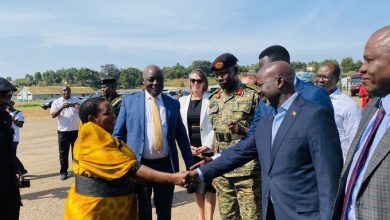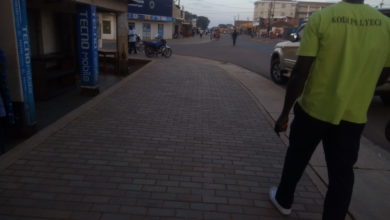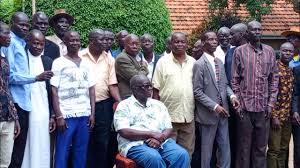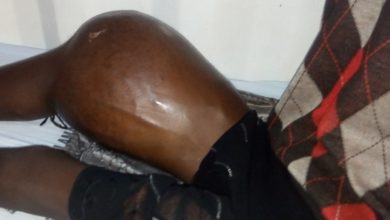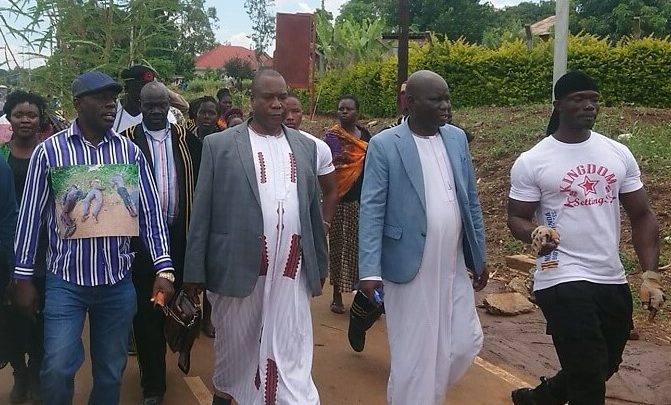
CulturesGlobal Politics
How Palace Coup is Unfolding in Ker Kwaro Acholi: Two Factions Fight
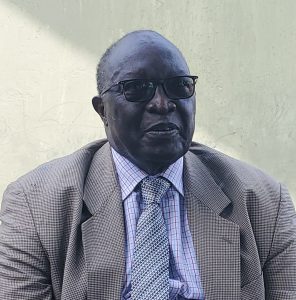
By Stephen Langole
For over a year now, since June 20th 2023, disagreements have been rife between two rival factions over the leadership at Ker Kwaro Acholi. One group is headed by Rwot David Onen Acana II of the Payira Chiefdom who was installed as the paramount chief of Ker Kwaro Acholi. Another group is headed by Rwot Santo Richard Apire of Atyak Chiefdom. Each group has a following; the former claiming over 40 chiefs bear allegiance to him while the latter claim over 30 chiefs are his followers. This, in the context the Acholi recognize 58 chiefdoms. Thisalso means that within certain chiefdoms, there are rival chiefs, one aligned to the formerwhile another one from the same chiefdom is aligned to the latter.
To give a background, chieftainship succession in Acholi is hereditary in the different chiefdoms. However, to ease their administration, the British colonial power created a parallel structure of elected leaders through Acholi District Council called Laloyo Maber (Good Ruler). At different points in time before they fizzled out altogether, the Laloyo Maber offices have been held by Phillip Adonga from Pajule Chiefdom, Matheo Lamot of Adilang Chiefdom and Lolo`vico Oryem of Atyak Chiefdom. For unclear reasons, the latter, Lolovico Oryem was elected by the District Council on 24/11/1961 for the position of Laloyo Maber but never took up office. Acholi chiefdoms Rwodi Moo might have been hereditary but the British have had an influence in choosing who should be chief bypassing some would be hereditary heirs. For instance, in Alero Chiefdom, through the British influence, Rwot Ajum was replaced by his brother Langole in acting capacity in 1918 because Ajum allegedly mobilized his subjects to go for a hunting expedition in the game park (See Lacito Okec’s Tekwaro Ki Ker Lobo Acholi, 1953).
The Payira appear to have held onto to a clearer line of succession of hereditary chiefs spanning from Rwotcamo to Rwot Awich, who was not a British favourite, to Elia Aliker then Yona Odida, Ericinia Acana to current David Onen Acana II but elsewhere, the British interference has made the line of succession subject to contestation.
In another twist of event, President Apollo Milton Obote’s government banned monarchical kingshipin 1966 presumably mainly targeting the powerful Buganda Kingdombut other kingdoms and the Acholi chieftainship and others alsoremained in hibernation mode.
When President Yoweri Museveni Government restored kingship, Rwot Godfrey Erecenia Acana, from the biggest Acholi Chiefdom, Payira gained acceptance among the Acholi as Lawi Rwodi (Paramount Chief). “Bul madit pe bedo i wii bul matidi”,went the saying, meaning a big drum does not sit on a small drum. The argument was that since the Payira is the biggest clan, it was only fit that their chief becomes the paramount chief. When Rwot Erecenia Acana passed on, Onen David Acana II was installed to replace him in 2005 as the Acholi paramount chief but not without grumbling from a section of people that the idea of paramount chief was not proper, Acana should simply be the Payira chief.
The current debate is, should the position of Lawi Rwodi (paramount chief) be elective or hereditary. There was clearly a precedent of heredity when David Onen Acana was allowed to replace his father upon his death. Those against the elective option point to the elective leadership introduced by the British for position of Laloyo Maber as viable but those for the hereditary option say that election may bring in a non-royal yet chieftainship in Acholi is a preserve for ot ker (royal family). Those for the elective option go as far as arguing that the position of paramount chief should rotate among all 58 or so Acholi clans. Other sources say that when David Onen Acana was installed, it was agreed by the other chiefs that he would lead them until he retires or dies, and that he (David Onen Acana) is aware of that, explaining why he would not easily be edged off his coveted chair as he lives.
However, the Prime Minister of Puranga Godwin Denis Okello insists that in fact, the Council of Chiefs had agreed that the position of Lawi Rwodi would be elective every five years and adds that other Chiefs had even suggested that such an election be held every three years and that this provision would be in a by-law. He admits that it appears the by-laws or constitution on this particular issue never materialized, creating the mess that the Apire faction vows to sort out.
Asked as to why this matter about the by-laws, constitution or elections would be brought now and not much earlier, since David Onen Acana II has been in his throne for close to two decades, he said the war in Northern Uganda interfered, the priority was peace first, and now that peace has returned, the issues could be reinvigorated and 2024 is the right year.
Another elderly source told the Black Star News that the rivalry now between Rwot Richard Santo Apire of Atyak and Rwot David Onen Acana of Payira has a historical precedent. The source told the Black Star News that when the British encountered the powerful and uncooperative Rwot Awich of Payira, they sidelined him, and opted instead to look at a softer Rwot Olya of Atyak chiefdom as somebody who would take care of their interest in Acholi. The source claims that it is history of rivalry replicated with root cause in the historical British interest.
According to the Prime Minister of Puranga Chiefdom Godwin Denis Okello, the Rwot Richard Santo Apire faction now cite three mistakes why they want the chair off David Onen Acana.
One, that Rwot David Onen Acana was found out to be selling a prime land in the middle of Gulu City that belongs to the chiefdom to the National Social Security Fund (NSSF).
Two, that Rwot David Onen Acana could not account for UGX 740m (US $ 200,000) given to the chiefdom by the Democratic Governance Facility (DGF) but when pressed for the accountability, he agreed that he would look around for money to refund but he has not yet done so.
Three, that those who spearheaded the query about corrupt tendencies by the paramount chief, were threatened with replacement and inciting rival chiefs from within their clans to come up so that those nosy chiefs are replaced. Naturally, such kinds of (nosy) chiefs also reacted, by gathering consensus from the rival groups to come up with a constitution to replace the ‘errant’ paramount chief, the Puranga Prime Minister said.
The Puranga Prime Minister said that those who were labelled by the Acana faction as illegitimate include Rwot Richard Santo Apire of Atyak, Rwot Koch Labongo Amida, and Rwot of Koro Chiefdom. The Premier said that in the case of chieftainship of Koch Labongo Amida, the the Rwot David Onen Acana II group went as far as inciting the chief’s brother to go ahead and get installed, but that the chief’s brother instead revealed the conspiracy to his brother failing the advice.
According to the Puranga Premier, what escalated tension between the two adversary chiefs most was when some members of the council of chiefs confronted the Paramount Chief to explain the impending land sale. The Paramount Chief was infuriated to the extent of chasing away the council of chiefs. The council of chief thereafter held a meeting at Sports View Hotel in Pece and resolved, through consensus, that there should be an election to replace the Paramount Chief.
According to the Premier, up to 41 chiefs consented to the idea of an election of a Paramount Chief, an election that would not bar the incumbent chief to stand as a candidate. Besides the issue of elections, the chiefs resolved that there would be need for a constitution for Ker Kwaro Acholi that would help to guide the transition from the incumbency to a new era.
Besides that, the disgruntled chiefs decided on an interim committee to see the transition, and by consensus agreed that Rwot Santo Richard Apire of Atiak Chiefdom would head that interim committee. The interim committee would later come up with a constitution through a Constitutional Commission that was constituted and the chiefs that participated in drafting the Constitution included Chief Ogenga John Obita, Collins Muttu Atiko, Lugai John Peko, Michael Ojok Aginya, Otira Godfrey Obol, Celestino Opobo and Jimmy Ocitti.
The Premier told the Black Star News that the constitution was promulgated on December 2nd 2023 during a meeting of Council of Chiefs held inKitgum, followed up by registration of Ker Kal Kwaro Acholi and gazetting the constitution. This paved the way for the elections that were partially concluded on June 14th 2024.
How the Elections were Done
Notifications were sent out by the Apire faction three weeks in advance concerning the June 14th 2024 elections at Acaki Lodge in Kitgum. The Police was informed and had no objection to the elections to go ahead.
However, in the morning of June 14th 2024 before the elections could take off, there were police deployment at the venue in Acaki Lodge. The chiefs decided to change the venue to Bomah Hotel and gathered for the election as early as 9:00 a.m. but by 10:00 a.m. there was another heavy police deployment at Bomah.
The Police interrupted the meeting preceding the election, stopped it and requested selected chiefs to go for a meeting with the Regional Police Commander. Those who went for the meeting with the RPC included Rwot Santo Richard Apire, Rwot Collins Muttu Atiko and Rwot John Peko Lugai.
The meeting was said to be interactive and the chiefs were able to ask the RPC for a court order that could prevent the meeting and the elections to proceed as planned and as per the prior notifications and the police permission. The Police reportedly informed the chiefs that further consultations should be done with the Minister of Gender, Labour and social Development before the meeting could go ahead.
The chiefs reportedly agreed with the RPC directive but asked to be allowed back at the venue to continue with consultation with the members left behind at Bomah Hotel. The Police yielded but granted them only 20 minutes for consultation.
The chiefs contested the decision but had no alternative but to agree with the position. One chief reportedly requested for at least 40 minutes to do the consultation. While the RPC were with the few chiefs, those ones who remained at Bomah Hotel consulted and unanimously agreed that Rwot Richard Santo Apire would be the new paramount chief.
The 20 minutes granted by the Police must have in reality morphed up into 40 or so minutes by which time a decision was taken, during lunch time, that the since there was no court order barring the elections, it should go ahead, only the venue should once more shift from Bomah to Ker Kal Kwaro Koch Labongo Amida. At around 4:00 p.m., elections started at the new venue.
Rwot Santo Richard Apire gave a briefing prior to the meeting, telling members about the legal instruments, and rules of procedure to guide the elections. Then the chief handed over to the Electoral Commission headed by Senior Counsel Joseph Oneka. The Council of Chiefs agreed that Mr. Denis Godwin Okello, the Prime Minister Ker Kwaro Puranga would serve as the presiding officer for the elections.
The Constitution, list of gazetted voters and code of conduct were then handed over to the presiding officer and the elections proceeded following the guidelines.
The law on quorum stated that two third majority was required and the list of gazetted members had 38 names. Nominations were to be followed by two secondments and voting was to be by secret ballot.
The position of speaker attracted the nomination of Rwot John Peko Lugai who was seconded, and passed unopposed. John Peko Lugai was elected a deputy speaker. Meanwhile Rwot Ogenga John Obita was elected unopposed as the first deputy Lawi Rwodi.
The second deputy Lawi Rwodi position attracted two people: Rwot Collins Muttu Atiko and Rwot Ocitti Binyi of Pagak. 16 people voted for Rwot Collins Atiko Muttu while 6 voted for Rwot Ocitti Binyi. A repeat election was called for since the two third majority was not realized for the winner as required in the electoral rule but Rwot Ocitti Binyi stepped down for Rwot Collins Muttu Atiko to take the position of the second Deputy Lawi Rwodi.
Asked as to why only 25 chiefs voted instead of the 38 on the register, the Puranga Premier told the Black Star News that some chiefs received threats of removal from their positions and withdrew while some of them were simply absent and still others sent representatives that could not be authenticated.
The Premier informed the Black Star News that ultimately, in accordance with the law, although a position had already been taken on who would be Lawi Rwodi, the formal process of nominating and seconding Rwot Richard Santo Apire as the unopposed Lawi Rwodi was done.
The premier informed that there are pending elections for committee chairs which are still to be done and that members agreed that that would be done within the next two months. Members reportedly agreed that in the meantime those interested in the positions of committee chairs should begin expressing their interests.
The elections concluded around 8:00 p.m. and thereafter the results were declared. Meanwhile within the next two months other required enthronement rituals will occur to consolidate the position of Lawi Rwodi. The elects will also receive certificates as provided for in the electoral guidelines according to the Puranga premier.
Lawi Rwodi gave an acceptance speech in which he requested that members work together, forgive one another and reconcile since reconciliation is at the centre of the Acholi custom. He emphasised care for the future generation.
The Premier told Black Star News that the outgoing Archbishop of Gulu John Baptist Odama later on interacted with the members of Rwot Richard Santo Apire where he also emphasized the need for reconciliation and was told that the bedrock of the whole process should gravitate around the constitution now in place.
He said Archbishop Odama was notified that the constitution was the gap that stood as a shore thump in Ker Kal Kwaro Acholi. Now that the Constitution is in place, it is the instrument that should guide the Ker Kal Kwaro Acholi and the constitution provides for periodic election of Lawi Rwodi.
It is too early to predict what will unfold in the aftermath of these elections but one thing for sure is, it is business as usual at Ker Kwaro Acholi at Wigot palace where Rwot Onen David Acana and his followers are based. They have unveiled a new Prime Minister, Michael Otim, from the Alero chiefdom, who boasts of a wealth of administrative experience.

